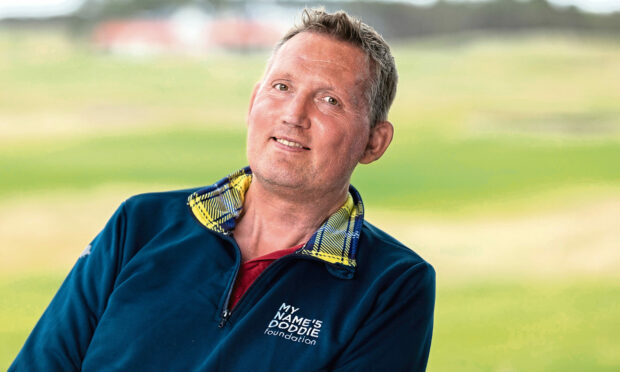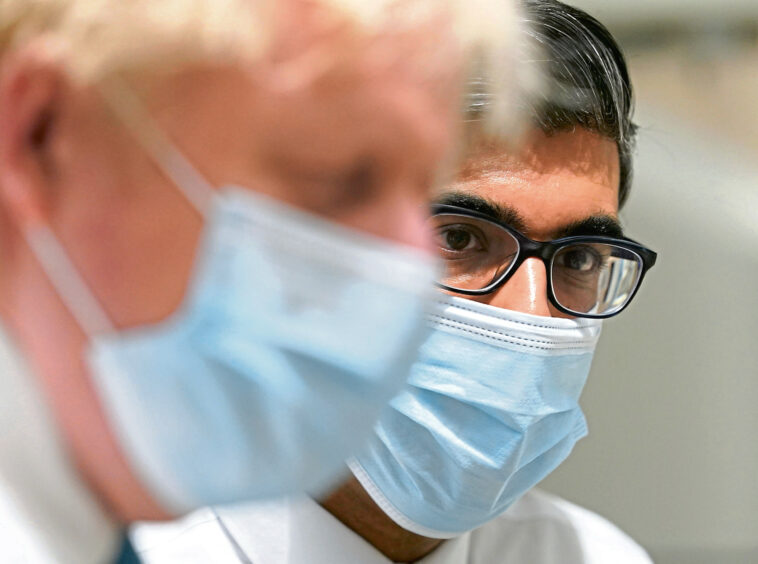Sir, – We are all waiting with bated breath to find out what will be our council tax for 2022-23.
The UK Government has recently announced another cash handout to ameliorate the effect of expected increases, but my question is, “What exactly is Holyrood doing to overview the cost-efficiencies of our councils?”
Here in Fife, it is reported that the head of the council receives an annual salary of £160,000 plus associated pension benefits.
Meanwhile, the mean average annual pay in Scotland in 2021 was £31,672.
Is it justifiable to pay the head of a regional council more than five times the annual average, and what about the costs of all the other council management positions?
It seems to me that instead of always paying cost-increase protection subsidies to our population from the public purse, the SNP should instead be taking a long, hard look at council costs in Scotland and asking questions about the size and cost of council bureaucracies.
Derek Farmer. Knightsward Farm, Anstruther.
First minister should match Doddie’s cash
Sir, – Can I ask through your columns that every MSP make a personal plea to our first minister to wear her heart on her sleeve and donate a figure to match what Doddie Weir has raised for research into MND.
Doddie is a talisman displaying unbelievable courage and tenacity in the face of incredible adversity. He is an amazing example to all of us of how to never give up but to fight, not just for himself, but for all fellow sufferers of this hideous disease. Doddie is so upbeat and keeps smiling, plus his mantra gives hope and a better quality of life to his fellow sufferers.
There surely cannot be any doubt as to what goes through the minds of motor neurone disease sufferers as they see vaccines being rolled out to help overcome Covid: “Why is more not being done for us with greater speed and urgency? But it will no doubt boil down to the fact we are in the fraction of a minority category. There should be no discrimination, we are all equal.”
At least the huge majority of Covid patients have a chance of a good recovery.
Not so with MND sufferers as there is no way back at all.
You even have a better chance with cancer or any other serious disease for that matter.
Please, first minister, give my plea further consideration. Doddie has been knighted in recognition of his incredible work raising awareness of motor neurone disease and Westminster has at long last been persuaded to throw £50 million into the research pot.
If the Scottish Government can find £9m for baby boxes and £5m for sanitary products then surely £5-7m can be found as a token of respect for what Doddie Weir has achieved.
Jock Bryce. Linton Hill Farm, Morebattle.
Tax rich footballers to pay energy bills
Sir, – Footballer Kurt Zouma was filmed kicking and mistreating his cats.
It is to be hoped that charges will be brought. West Ham fined him two weeks’ wages, the maximum allowed.
The fine was £250,000. Idea: Why do we not tax footballers and other highly paid people at 60% or more, not the present maximum of 40%, and use it to subsidise our eye-watering energy bills?
Eat or heat problem solved.
Clark Cross. Springfield Road, Linlithgow.
Costly alarm system I didn’t even need
Sir, – Despite already having six mains-powered smoke and carbon monoxide alarms in my house, I have just spent £780.70 installing a new, interconnected, alarm system in order to meet the SNP directive and the deadline of February 1 2022.
I now discover that, after all, there is no deadline, no inspections and that my house insurance was never going to be affected.
Another expensive SNP mess?
Roger Learoyd. The Glebe, Edzell.
What about using a chock for doors?
Sir, – The proposal to chop off the bottom of classroom doors in order to improve ventilation strikes me as slightly mad.
First of all, it is expensive.
Secondly, if subsequently it is discovered to be a mad idea, imagine the cost of retracting the move. Thirdly, there is a much simpler measure: Simply put a chock under the door to keep it slightly open when required.
At the very least, further thought is required by those proposing to chop doors.
Martin Roberts. Crieff Road, Perth.
If only manifesto had boasted this realism
Sir, – Alex Bell deserves our respect for changing his mind about the SNP/Green independence “mission”.
I just wish his sentence “The honest path to independence involves some tough years, and lots of radical decisions about how to structure the state so it is more efficient at less cost” had been front and centre of the foreword to the Scotland’s Future independence manifesto he helped to write in 2013.
The last seven years may have been a lot different and more realistic.
Allan Sutherland. Willow Row, Stonehaven.
Scottish Government’s catalogue of blunders within space of a fortnight
Sir, – How could our Scottish Government make so many stupid blunders in just a single fortnight?
Firstly, we the tax-paying public were asked to believe that we could slow down the spread of Covid in schools by cutting off the bottoms of classroom doors.
Then, after the Foreign Office of the United Kingdom declared that, for safety reasons, no one should travel to the Ukraine without good cause, three members of the SNP chose to fly there – obviously to display that they had the right to do so! I hope that that trip was not funded by we taxpayers.
Finally, workers travelling to work in their cars may soon find that they are to be charged a fee for parking in their company’s car park.
Our brilliant Scottish Government is allowing local authorities to levy unlimited parking fees upon workers leaving their cars in such private parking sites.
Why can’t those supposedly clever legislators not see that all those employees will leave their cars in the streets closest to their place of work? I can’t think of a more stupid way of choking up the traffic-flow in the streets that lie closest to factories or offices!
Archibald A Lawrie. Church Wynd, Kingskettle.
Unionist pension claims don’t add up
Sir, – I’m not an economist, nor do I claim to know about the machinations of Westminster or Holyrood finance, but I am blessed with more than a modicum of common sense.
In Point 4 of your headline letter by Denis Munro he mentions Scotland leaving the union without paying a share of the UK national debt – of course they would.
At the same time, Scots who have paid into the UK pension pot up to independence are surely entitled to get out what they’ve paid in?
Unionists can’t have it both ways, much as they’d like to.
Douglas McCarroll. McKenzie Crescent, Lochgelly.
High tax cost of independence
Sir, – It is normal to have separatists appear in print, uttering such nonsense as the UK without Scotland would continue to finance the newly independent nation’s pensions.
It is quite something else, however, to see an SNP MP totally mislead the readership of the Courier by claiming that those Scots who have made contributions are being let down by the UK Government.
The UK Government (it is not the British government) can’t renege on paying out pensions when the system has always been that today’s contributions pay the recipients of pensions tomorrow.
There is no pot of money being used to pay your future pension, which I am sure Douglas Chapman MP will be well aware of.
Misleading the public in this manner is preposterous but one does have to ask yourself why he would do so.
Is it perhaps because he is aware that if the electorate considered the true picture of a Scotland that does not have enough working taxpayers to fund the pensions of our citizens due to the demographics, they will vote no?
The working age population would face astronomical tax increases to fund pensions at their current level in an independent Scotland. Who knows what the taxation level would have to be to double the state pension as the SNP claim they will do.
Perhaps Mr Chapman might like to explain to us why he thinks that independence means relying on your previous partner to maintain the lifestyle to which you have become accustomed.
You can’t move out of a shared home but insist on still being allowed back to use the washing machine. That’s not independence, is it now, Mr Chapman?
Jane Lax. Craigellachie, Aberlour.
Argument over payments to Scots
Sir, – Already we have disagreement as to whether England would continue to pay state pensions to Scots after independence.
This is typical of the hundreds of such arguments and uncertainties, and unexpected outcomes that would slowly unfold as the process of independence ground on; while Scotland itself – adrift on a stormy sea of international commercial uncertainty – would have a hard time financially while trying to get into the EU.
Malcolm Parkin. Gamekeepers Road, Kinnesswood.
Misleading figures over UK economy
Sir, – Former prime minister Benjamin Disraeli famously warned against putting too much store in statistics, and the latest growth figures are a perfect example of why he was right.
On the face of it, 2021 was an absolutely fabulous year for the economy. Britain has had some boom years in the post-war period – 1973 and 1988, for example – but the 7.5% growth last year was the fastest of the lot.
Yet 2021 can’t be seen in isolation. Boris Johnson and Rishi Sunak are correct when they say the UK had the fastest growth in the G7 last year, yet what they curiously omit to add is that it came after the UK had the biggest contraction of any G7 nation a year earlier.
The real story is that the economy collapsed by almost 10% in 2020 and then recovered most of the lost ground last year.
Indeed, activity in the final three months of 2021 was 0.4 % lower than in the final three months of 2019 – the period immediately before the pandemic struck. By way of comparison, the eurozone is back to where it was pre-Covid while the US is operating more than 3% above its level in late 2019.
Before we get the bunting out, as the cost-of-living crisis builds this doesn’t herald a rosy outlook, and this year the UK economy’s growth will inevitably slow to its poor post-Brexit level.
Alex Orr. Marchmont Road, Edinburgh.











